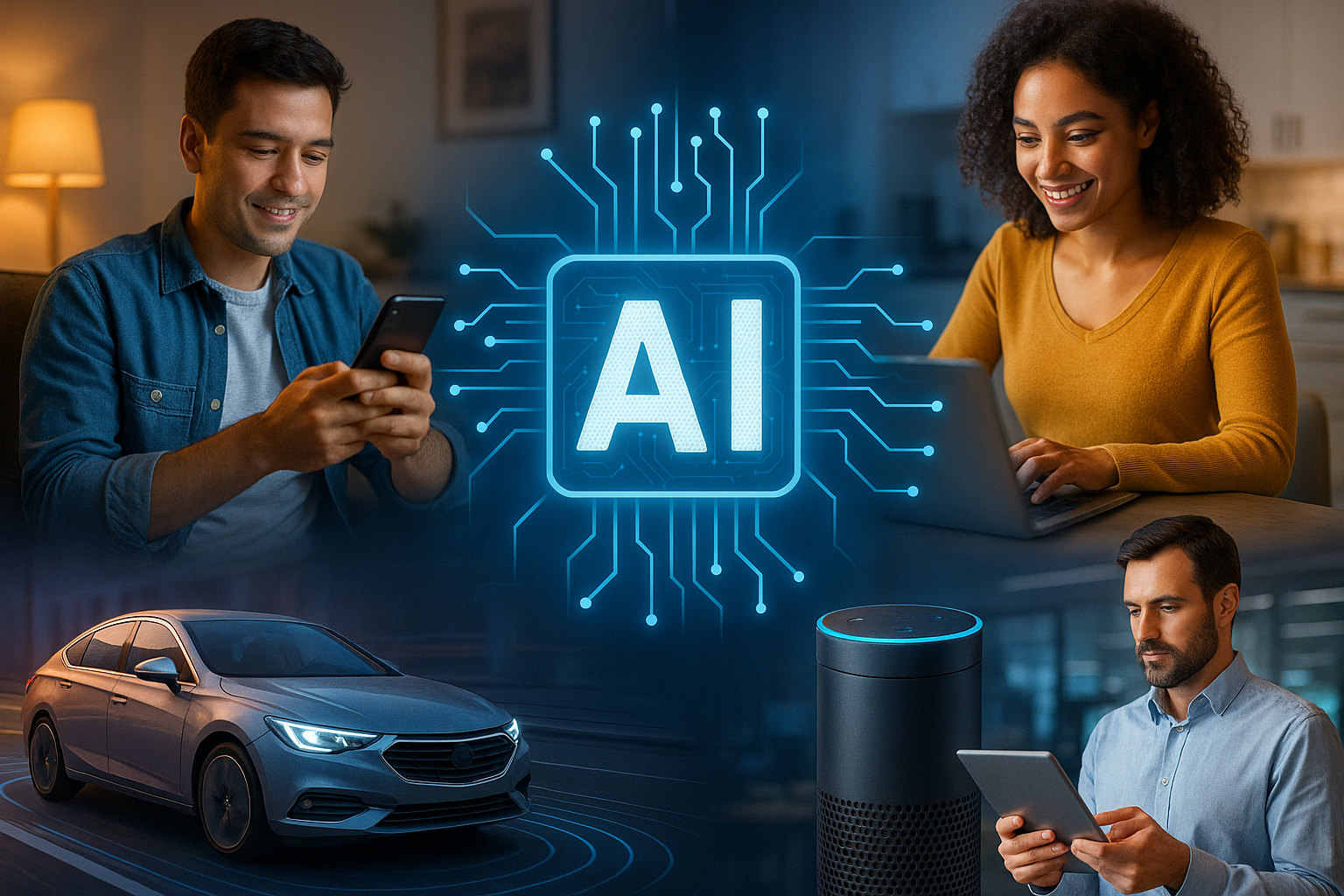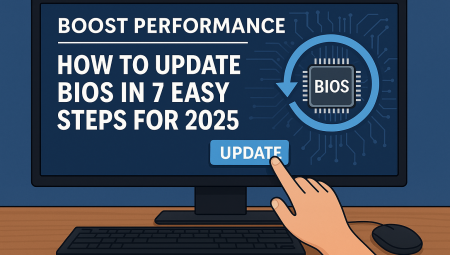The AI Revolution at Our Doorstep
Artificial Intelligence (AI) is no longer a futuristic concept — it’s the present. In 2025, AI is seamlessly integrated into our daily lives, revolutionizing the way we work, communicate, shop, and even think. From voice assistants to self-driving cars and AI-generated content, the influence of artificial intelligence is everywhere. This article explores real-world applications of AI that are changing everyday life and what this means for the future.
Whether you’re a tech enthusiast, digital marketer, entrepreneur, or an everyday consumer, understanding how AI is shaping society will empower you to adapt, innovate, and thrive.
What Are the Key Areas Where AI Is Changing Everyday Life?
AI in Smart Homes
Voice Assistants and Home Automation
Devices like Amazon Alexa, Google Assistant, and Apple Siri have moved beyond simple tasks. Today, they control smart appliances, optimize energy usage, and offer proactive reminders. They even learn your habits to anticipate needs before you speak.
AI-Powered Security Systems
AI-based surveillance uses facial recognition and behavior prediction to enhance home security. Modern systems can distinguish between a neighbor and a potential intruder, reducing false alarms and providing real-time alerts.
AI in Transportation
Autonomous Vehicles and Public Transport
Self-driving cars are hitting the roads with more confidence. Companies like Tesla, Waymo, and Cruise are refining AI algorithms that navigate traffic, detect obstacles, and ensure passenger safety. In some cities, AI-powered buses and trains are already operational.
Smart Navigation and Traffic Management
Apps like Google Maps and Waze use AI to analyze traffic patterns and provide optimized routes in real-time. Governments are leveraging AI to manage city traffic flow more efficiently, reducing congestion and emissions.
AI in Healthcare
Early Diagnosis and Predictive Analytics
AI tools now analyze patient data to detect diseases like cancer and diabetes early. IBM Watson and Google Health are examples of platforms using deep learning to improve diagnostic accuracy and personalize treatment plans.
Virtual Health Assistants
Patients can now access AI-powered chatbots 24/7 for symptom analysis, medication reminders, and booking appointments. These tools reduce the strain on healthcare providers and enhance patient engagement.
AI in Shopping and Retail
Personalized Shopping Experiences
AI curates tailored recommendations on platforms like Amazon, Shopify, and Etsy. It tracks user behavior, purchase history, and preferences to suggest items that are most likely to be bought.
Virtual Try-Ons and AI Stylists
Fashion and beauty brands use AI to offer virtual try-ons using augmented reality. This technology enables customers to see how clothes, makeup, or glasses will look without ever stepping into a store.
AI in Communication and Content Creation
AI Writing Tools and Chatbots
AI platforms like ChatGPT, Jasper, and Copy.ai help create blog posts, emails, ad copy, and more. This technology enhances productivity for writers and marketers while maintaining tone and intent.
Real-Time Translation and Speech Recognition
Apps like Google Translate and Microsoft Translator use AI to break language barriers, enabling smoother global communication in business, travel, and personal interactions.
AI in Education
Intelligent Tutoring Systems
AI-driven platforms provide personalized learning paths based on each student’s progress and performance. Examples include Khan Academy’s adaptive learning and Duolingo’s smart language modules.
Automated Grading and Feedback
Teachers save time with AI that grades assignments, provides instant feedback, and detects plagiarism. This frees educators to focus more on student interaction and lesson planning.
AI in Personal Finance
Smart Budgeting Tools
Apps like Cleo, YNAB, and Mint use AI to analyze your spending habits, forecast future expenses, and suggest better budgeting strategies.
Fraud Detection and Security
AI monitors transaction patterns in real time to detect unusual activity and prevent fraud. Banks use machine learning algorithms to flag unauthorized transactions instantly.
How Is AI Affecting Jobs and Employment in 2025?
AI is automating repetitive tasks in industries such as customer service, logistics, and manufacturing. However, it’s also creating new roles in AI training, ethics, maintenance, and data analysis. The key is upskilling and adapting to new opportunities rather than fearing job loss.
What Are the Real-World Applications of AI in 2025?
AI is used in smart homes, healthcare, transportation, education, and retail to automate tasks, personalize experiences, and increase efficiency. In 2025, AI’s real-world impact is visible in voice assistants, autonomous vehicles, medical diagnostics, and shopping personalization.
Pro Tips: Expert Advice on Adapting to AI
- Stay Updated: Subscribe to reliable AI news sources like MIT Technology Review or Wired.
- Learn Basic AI Skills: Platforms like Coursera and Udemy offer beginner-friendly courses.
- Experiment with AI Tools: Try writing tools, finance apps, or image generators to familiarize yourself.
- Focus on Soft Skills: Creativity, emotional intelligence, and adaptability are hard to automate.
- Secure Your Data: Understand how AI apps use your data and protect your privacy accordingly.
- Explore AI Ethics: Read about bias, transparency, and fairness in AI to engage in responsible innovation.
Frequently Asked Questions (FAQ)
Will AI take over all jobs in the future?
No. While AI will automate certain tasks, it also creates opportunities in new industries. Jobs requiring creativity, empathy, and critical thinking will remain essential.
Is AI safe to use in daily life?
Yes, when implemented ethically and responsibly. It’s crucial to use AI tools developed by trusted companies and stay informed about data privacy.
How can I start learning about AI?
Begin with online platforms like Coursera, LinkedIn Learning, or YouTube tutorials. Understanding the basics doesn’t require a tech background.
What industries benefit most from AI in 2025?
Healthcare, finance, transportation, education, and retail are leading in AI adoption. These sectors show the most visible impact on everyday life.
Can AI really understand human emotions?
To some extent, yes. AI systems can analyze facial expressions, voice tones, and text sentiment to respond empathetically — though not as a human would.
💬 What do you think? How do you see AI affecting your own life in the coming years? Share your thoughts in the comments below!



